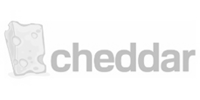Listen on the Podcast
What is a Brokerage Account?
A brokerage account is what investors use to buy and sell securities. These securities can be in the form of stocks, bonds, mutual funds, ETFs and more. The brokerage account acts just like a normal bank account, but unlike bank accounts, you as the investor have access to invest into the markets.
Today, most brokerages allow you to get started 100% online. In fact, you can open a brokerage account at most places completely free, however you will need to transfer money into the account before you can start investing. Once your money is inside the brokerage account, you have the option to buy and sell investments at anytime.
What Are My Options to Open a Brokerage Account?
There are three different ways to start investing in the stock market:
- Through a Financial Planner or Financial Advisor
- A Self-Directed Brokerage Account
- A Robo-Advisor
Since it’s pretty self-explanatory on how to get set up with a financial advisor, the purpose of this episode is to show you how to open up a self-directed brokerage account and/or how to get started with a robo-advisor.
What is a Self Directed Brokerage Account?
A self-directed brokerage account gives you all the control of the investments inside the account. As the investor, you are choosing the securities (stocks, bonds, ETFs, etc.) and creating your own investment strategy. While most self-directed brokerage accounts have tools and resources for doing research on potential investments, all the trading will be done by you — the investor.
There are usually no fees associated with a self-directed brokerage account, however there are a few brokerages left that still charge a small fee to trade. However, most are 100% free trades.
What is a Robo-Advisor?
A robo-advisor is a digital platform that uses AI (artificial intelligence) to provide automated investing based on algroithms. Robo-advisors have little-to-no human interaction and instead manage your investments based on your risk tolerance and goals. Since robo-advisors do not have any human interaction while choosing investments, the cost is much lower.
Investors can expect to pay between 1% and 2% management fees with a financial advisor and betwen 0.15% and 0.40% fees with a robo-advisor.
What is My Best Option for Investing?
By the end of the episode, you will have a complete understanding of how they all differ and which is the best choice: a financial advisor, a robo-advisor, or a self-directed brokerage account.
No one way is better or worse than they other, because they are all dependent on you as the investor. Some may desire to have that human-to-human interaction, where others would rather do it all themselves.
An Inside Look at My Own Self-Directed Brokerage Account
Thanks so much for listening to the show and if you feel the content of this podcast was helpful, please subscribe to the podcast where you listen and leave a review!
Today’s show was brought to you by OneAZ Credit Union — my very own credit union I have been proud a member of since 2011.

If you live in Arizona and are looking for a large credit union with a local, customer-focused feel for your personal or business banking needs, look no further than OneAZ Credit Union.






